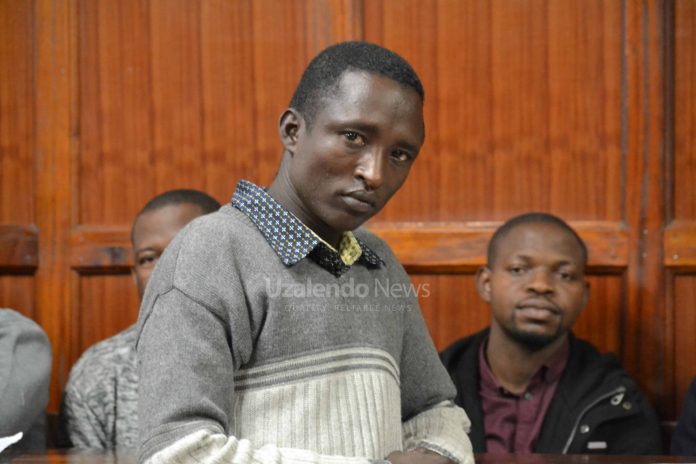In mid-July Chad lifted its 16-month social media ban. This ended the longest social media blockage seen in any African country. The government argued that the lengthy ban was necessary for security reasons.
The Chadian case highlights the way social media has increasingly been framed as a threat, especially by authoritarian leaders. Since the beginning of 2019 at least nine other African countries have also experienced government ordered internet shutdowns.
A recently published volume jointly edited by us digs deeper into this pattern. We explored the various ways social media has been entangled with politics and security. Social Media and Politics in Africa: Democracy, Censorship and Security includes cases from nine African countries. The 18 contributors to the volume include academics in Africa, Europe, North America, and Australia. Journalists and practitioners in the field of international development also contributed.
Political leaders often view social media as a threat because it can provide the public with greater access to information. It also has the potential to mobilise and challenge leadership. Some authors found ways in which digital platforms were creatively used to expand political participation.
But many authors found the opposite to be the case. In researching cases in Kenya, Stephanie Diepeveen and Alisha Patel demonstrated how social media contributed to reinforcing existing power structures and dominant narratives.
Similarly, a study by Jean-Benoît Falisse and Hugues Nkengurutse found that public political discussions on Facebook and Twitter in Burundi generally didn’t include ordinary citizens. Instead, they were dominated by a small number of elites who acted as brokers.
In recent years Africa has seen the world’s highest internet penetration growth rates. This means that we should expect social media to play an increasingly prominent role in politics and security on the continent.
This book helps us understand the diverse and complex ways social media is shaping political engagement.
Social media and elections
Three chapters are devoted to social media and elections. In them, the authors show how social media helped develop spaces for engagement and debate.
The first, by us and Jamie Hitchen, found that WhatsApp was an especially important avenue for smaller political parties and new voters in Sierra Leone. The two others – one on Senegal by Emily Riley, the other by researcher and lecturer Nkwachukwu Orji focusing on Nigeria – show the ways civil society organisations use social media in the hope of adding transparency to the electoral process.
Yet, these chapters each warn of the problems of “fake news” on social media. For example, Orji cautions in his Nigerian study that the absence of a strategy to address misinformation can incite election-related violence.
In addition, many government attempts to limit social media occurred during election periods or at unanticipated moments of instability. This happened in Ethiopia during the internet shutdown following the “coup attempt” in June 2019.
Other states have taken more sustained measures to curtail the use of digital platforms. Tanzania, for instance, outlaws the spreading of “false” information under its Cybercrimes Act. UK academic Charlotte Cross explores the law’s origins and implementation. She also highlights the heavy burden that individuals have paid for criticising the government on social media.
Traditional and new media
Social media’s complex symbiotic relationship with mainstream media is still evident in powerful ways.
Somalia specialist Peter Chonka, for example, argues that the blurring of public and private boundaries inherent in the country’s social media environment can be disruptive. It has resulted in a lack of coherence in political communication by state actors. This further challenges their legitimacy. Tensions between traditional and modern forms of communication are reflected in the online clash of views over “appropriate” online content, moral values and perceived threats to national security.
Media scholar Brian Ekdale highlights the debates around “morality” in social media content. He researched a Kenyan government official’s attempts to block a local art collective’s music video that had been uploaded to YouTube. Ekdale then considers what this shows about the ongoing tensions between global media technology giants and local users and regulators on the continent.
Looking beyond the digital
Social media is more than views and opinions shared online. The technology can also help orchestrate protests that move beyond the digital realm. Two studies look at this. One is by George Karekwaivanane and Admire Mare on the #ThisFlag campaign’s efforts to remove Robert Mugabe from power in Zimbabwe. The other is Tanja Bosch’s analysis of the #ZumaMustFall movement’s attempts to remove Jacob Zuma from the presidency of South Africa.
Both detail the role that social media can play alongside physical demonstrations on the streets. They each also draw attention to the numerous challenges that these movements faced. In doing so, they contribute to Bruce Mutsvairo and Kate Wright’s argument that a better understanding is needed about the preconditions of effective digital activism.
Finally, Denis Galava argues that increased social media legislation in East Africa is part of a wider historic pattern of systemic state surveillance of the region’s citizens.
These contributions highlight an important point made in this book. Any credible research into social media should be permeated by an acute awareness of how the past informs the present.![]()
Maggie Dwyer, Lecturer, Centre of African Studies, University of Edinburgh and Thomas Molony, Senior Lecturer in African Studies & Director, Centre of African Studies (CAS), University of Edinburgh
This article is republished from The Conversation under a Creative Commons license. Read the original article.




















